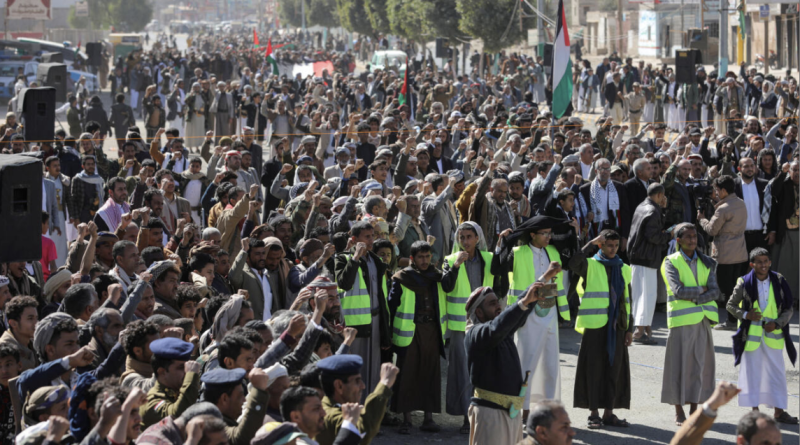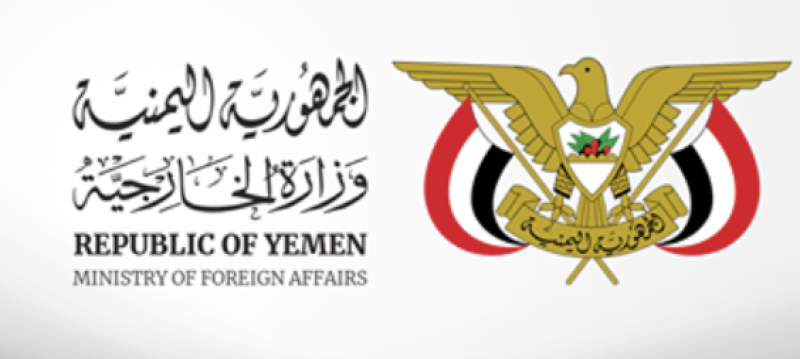Yemen PM : Implementing Riyadh Agreement Needs Wisdom, Patience


Yemeni Prime Minister Maeen Abdulmalik ruled out the possibility of holding new talks with the Iran-backed Houthi militias as long as they continue to obstruct the implementation of the Stockholm agreement.
He also spoke of progress in implementing the Riyadh Agreement that was signed between the legitimate government and Southern Transitional Council (STC).
Asharq Al-Awsat sat down with the premier at the presidential palace in the interim capital Aden where he returned to oversee the implementation of the deal, which was signed in November.
The implementation of the Riyadh Agreement requires a lot of “wisdom, patience and skill,” he stressed.
Assessing the situation in Aden, he said the city has not completely recovered yet from the coup and destructive war that was launched by the Houthis. Recovery has also been undermined by political tensions in recent years that have hampered government efforts to carry out wide reforms and consolidate state institutions.
Committees formed by Saudi Arabia, government and STC are operating daily on the implementation of the Riyadh Agreement, continued Abdulmalik. He acknowledged difficulties in sticking to set timetables and deadlines due to sensitive political and military factors.
“Tackling them demands a lot of wisdom, patience and skill whether from the committees or by resorting to higher leaderships to overcome several obstacles,” he stressed.
“The committees have made great progress … and their work is backed by the president and Saudi leadership to ensure the success of the Riyadh Agreement,” he added.
“Since the government returned to Aden, we launched a comprehensive plan to normalize affairs. We met local authorities from Aden, Dhale, Taiz, Lahj and Hodeidah,” he continued. Talks were also held with officials overseeing vital services, such as water, electricity and education.
“Discussions focused on the main challenges and problems they are facing. We have since made important decisions to support these parties,” Abdulmalik stated.
Radical reforms have been introduced to the mechanism to purchase fuel for electricity generation. This will have a major impact in providing public funds and the performance of the central bank, he continued. Decisions have also been made in regards to combating money-laundering and terrorism financing.
“This is a significant step in protecting Yemen’s economy and national security. It bolsters our partnership with the international community and economic institutions,” remarked the premier.
Asked if the STC is serious in implementing the Riyadh Agreement, Abdulmalik replied: “We hope everyone will realize that the implementation of the deal serves the national interest, preserves the state and achieves the hopes of the people.”
“We are completely committed to implementing the deal and Saudi Arabia is playing a major role in making sure that happens,” he stressed.
Asked if he is concerned about the re-eruption of clashes between the legitimate government forces and STC, especially in the Abyan and Shabwa provinces, he replied: “Such fears will remain until the Riyadh Agreement is completely implemented.”
“These concerns should drive us to exert more efforts to overcome differences,” he stressed. “The political leadership, headed by President Abdrabbuh Mansur Hadi, has enough wisdom and patience to overcome the greatest of security challenges.”
“We are relying on the wisdom of all powers and their commitment to national interests to eliminate these fears,” Abdulmalik added.
Saudi Arabia’s efforts, its major role in overseeing the implementation of the agreement and effective contribution in the execution mechanism are guarantees that will avert any new escalation, he went on to say.
Assessing the humanitarian situation in the country, the premier said: “As long as the Houthis continue to wage their criminal war against the people and as long as they continue to undermine the country's political system and services, the situation will remain tragic.”
He said that despite the massive humanitarian work by friendly countries and the international community in easing the suffering of the Yemeni people, the main problem remains unresolved.
The root cause of the humanitarian crisis is the Houthi war, their coup against the legitimate institutions and their looting of relief aid, he added.
“We have repeatedly said that combating the crisis, regardless of how great the humanitarian aid, is not a real solution or enough to resolve the real problem,” Abdulmalik said.
A.Awsat

Sana'a -- The Houthi militias in Sana’a, Yemen, announced the death of several of their military commanders, without disclosing the location…

Aden – Yemen’s Ministry of Foreign Affairs has welcomed the latest statement issued by the United Nations Security Council regarding th…

London – The United Kingdom has welcomed the latest statement issued by the UN Security Council on Yemen, stressing the urgent need for the H…